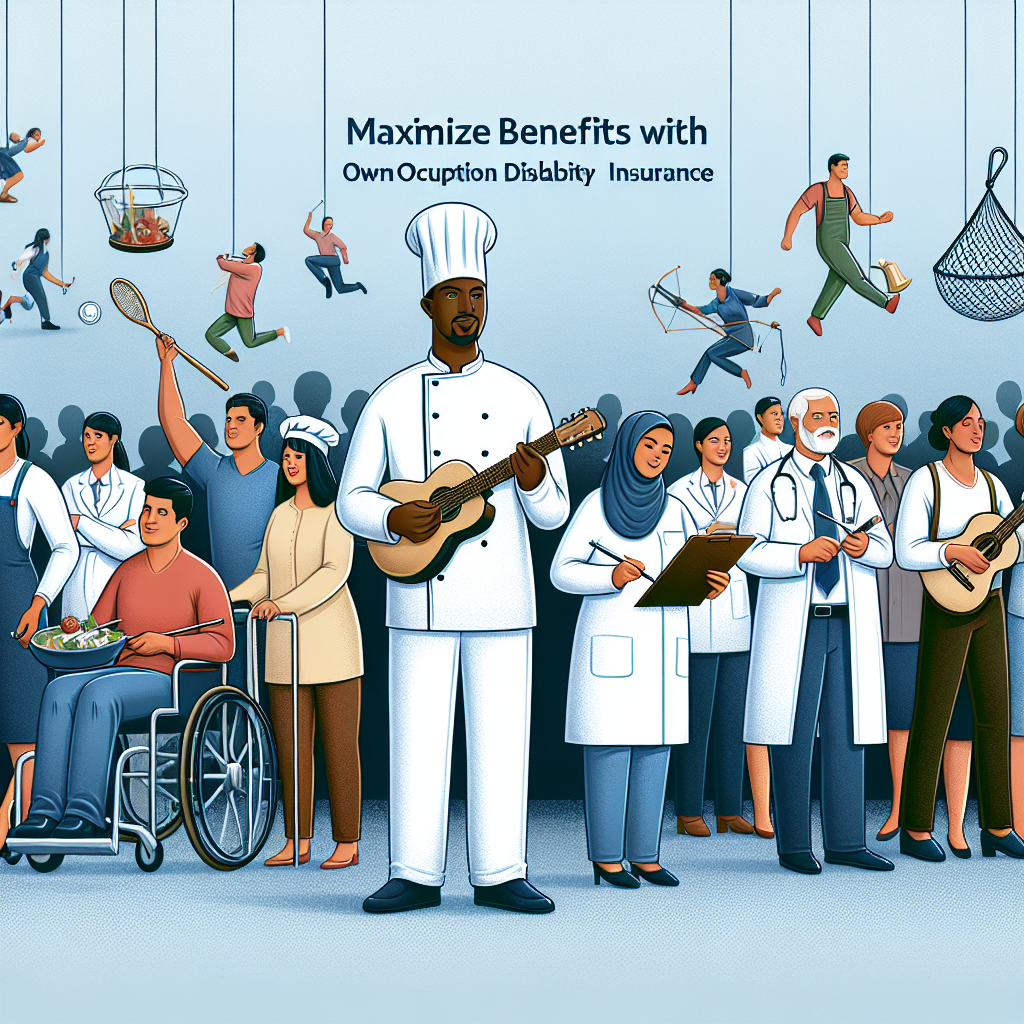Filed under Business Insurance on
Understanding Line of Business Insurance Basics

When it comes to safeguarding a business, understanding the nuances of insurance is as critical as selecting the right product or service to offer. For businesses across various sectors, grasping the basics of line of business insurance is not just prudent—it's essential. This form of insurance ensures that each facet of your business has the specific coverage it requires, thus mitigating risks unique to different operations. In this comprehensive guide, we’ll delve into the fundamentals of line of business insurance, exploring its significance, types, and the factors to consider when choosing the right coverage for your enterprise.
What is Line of Business Insurance?
Line of business insurance refers to specific types of insurance policies that cover various aspects or lines of a business's operations. While standard business insurance offers general liability protection, line of business insurance provides a more targeted approach, addressing the unique risks associated with distinct business segments. This tailored coverage ensures comprehensive protection, enabling businesses to operate with confidence, knowing that their individual needs are met.
Key Types of Line of Business Insurance
1. Commercial Property Insurance
Commercial property insurance is a fundamental line of business insurance that protects the physical assets of a business. This policy covers damages to buildings, inventory, furniture, and equipment due to risks such as fire, theft, or natural disasters. For businesses reliant on physical locations or significant assets, commercial property insurance is indispensable.
2. General Liability Insurance
Every business can potentially face third-party claims related to bodily injury or property damage. General liability insurance, a critical line of business insurance, provides coverage against such claims. This policy not only covers legal fees but also settlements and judgments, shielding businesses from financial ruin.
3. Professional Liability Insurance
Also known as errors and omissions insurance, professional liability insurance is vital for service-oriented businesses. It protects against claims of negligence or inadequate work. For professions such as consultants, lawyers, or medical practitioners, this line of business insurance is crucial to mitigate risks associated with alleged professional errors.
4. Workers' Compensation Insurance
Workers’ compensation is a mandatory line of business insurance in most jurisdictions. It provides coverage for employees who suffer work-related injuries or illnesses, ensuring they receive medical care and compensation for lost wages. By law, businesses must offer workers' compensation to protect both employees and the company from litigation costs.
5. Business Interruption Insurance
This insurance covers loss of income that a business suffers after a disaster. In the event of incidents that disrupt business operations, such as fires or floods, business interruption insurance is a vital line of business insurance that ensures financial stability by covering ongoing expenses and lost profits during recovery phases.
The Importance of Line of Business Insurance
Line of business insurance is not just an optional add-on; it is a critical component of risk management strategy. By providing tailor-made protection, it allows businesses to address unique risks effectively. Without adequate coverage, businesses might face significant financial losses, reputational damage, or even bankruptcy. Moreover, having robust line of business insurance policies can enhance credibility and trust among stakeholders, including customers, partners, and employees.
Factors to Consider When Choosing Line of Business Insurance
Assessing Business Needs
Every business has unique needs based on its industry, size, and operational model. A thorough assessment of these factors is essential when selecting line of business insurance. For instance, a tech startup might prioritize cyber liability insurance, while a restaurant may need specific coverage for food spoilage or related incidents.
Risk Evaluation
Evaluating potential risks allows businesses to prioritize their insurance needs. By conducting a thorough risk assessment, businesses can identify which line of business insurance policies offer the most critical protection. Understanding both prevalent and peripheral risks helps businesses allocate resources effectively to safeguard their operations.
Cost-Benefit Analysis
Insurance costs are a significant consideration for businesses. Performing a cost-benefit analysis ensures that the premiums paid align with the protection and potential payoff. While cutting corners on line of business insurance might seem cost-effective in the short term, it can lead to catastrophic financial consequences if an uncovered event occurs.
Research and Expert Opinions
Consulting with insurance experts and brokers can provide invaluable insights into the best line of business insurance options. These professionals can help evaluate coverage limits, exclusions, and the credibility of insurance providers. Additionally, staying informed about industry trends and emerging risks ensures that insurance coverage remains relevant and effective.
Current Industry Trends in Line of Business Insurance
The landscape of line of business insurance is evolving, shaped by technological advancements and emerging risks. Understanding these trends can help businesses adapt and ensure comprehensive coverage.
Digital Transformation and Cyber Risks
The digital era brings unprecedented benefits but also introduces new risks, notably cyber threats. As businesses increasingly rely on digital solutions, there’s a growing need for cyber liability insurance—a special line of business insurance that covers data breaches and cyberattacks.
Sustainability and Climate-Related Risks
Climate change poses significant threats to businesses across various sectors. The industry is witnessing a shift towards insurance products that address environmental risks. This includes specialized policies covering damage from natural disasters, a testament to the necessity of tailored line of business insurance that matches the growing concerns over sustainability.
Customization and Flexibility
Today’s insurance market values customization. Businesses are demanding more flexible line of business insurance options tailored to their specific needs. Insurers are responding with policies that offer customizable coverage, allowing businesses to build comprehensive insurance packages that address their unique challenges and requirements.
The Future of Line of Business Insurance
Looking ahead, line of business insurance is set to become even more integral to business strategy. As risks evolve, so too will insurance products, offering more sophisticated coverage options. Innovations in technology, such as AI and big data analytics, are poised to further transform the industry, enabling more precise risk assessments and personalized insurance solutions.
Businesses that proactively adjust their insurance strategies to reflect these advancements will be better positioned to manage uncertainty and foster long-term resilience. Embracing the evolving landscape of line of business insurance not only ensures protection but also enhances a company’s capacity to thrive amidst change.
Conclusion
Line of business insurance is a cornerstone of a solid risk management framework. With its ability to provide targeted coverage for the unique aspects of a business's operations, it’s indispensable for ensuring long-term sustainability and success. By carefully evaluating needs, understanding trends, and selecting the right policies, businesses can protect themselves against unforeseen challenges and position themselves for growth. As the business environment continues to evolve, ensuring comprehensive coverage through line of business insurance will remain a critical strategy for safeguarding future prosperity.





